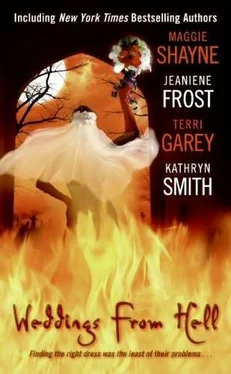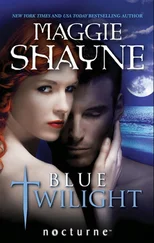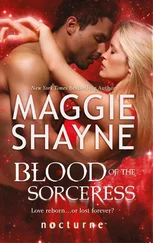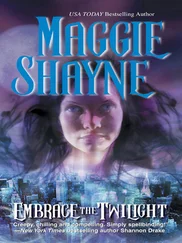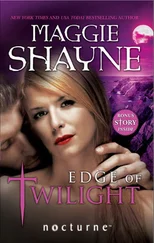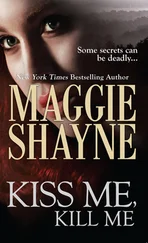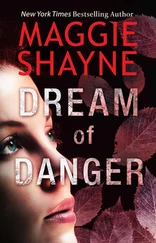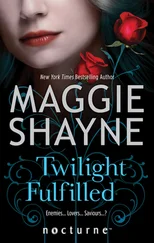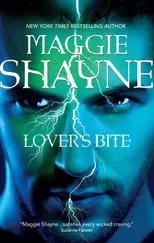Maggie Shayne - Weddings from Hell
Здесь есть возможность читать онлайн «Maggie Shayne - Weddings from Hell» весь текст электронной книги совершенно бесплатно (целиком полную версию без сокращений). В некоторых случаях можно слушать аудио, скачать через торрент в формате fb2 и присутствует краткое содержание. Год выпуска: 2008, ISBN: 2008, Издательство: HarperCollins, Жанр: sf_fantasy_city, Фантастические любовные романы, на английском языке. Описание произведения, (предисловие) а так же отзывы посетителей доступны на портале библиотеки ЛибКат.
- Название:Weddings from Hell
- Автор:
- Издательство:HarperCollins
- Жанр:
- Год:2008
- ISBN:978-0-06-165246-2
- Рейтинг книги:5 / 5. Голосов: 1
-
Избранное:Добавить в избранное
- Отзывы:
-
Ваша оценка:
- 100
- 1
- 2
- 3
- 4
- 5
Weddings from Hell: краткое содержание, описание и аннотация
Предлагаем к чтению аннотацию, описание, краткое содержание или предисловие (зависит от того, что написал сам автор книги «Weddings from Hell»). Если вы не нашли необходимую информацию о книге — напишите в комментариях, мы постараемся отыскать её.
What happens when "the happiest day of your life" turns into a nightmare? Forget the drunken best man or the bridesmaid dresses from the '80s . . . none of these wedding day disasters can compare to a cursed bride determined to make it down the aisle, or a vampire who is about to disrupt your wedding.
Weddings from Hell — читать онлайн бесплатно полную книгу (весь текст) целиком
Ниже представлен текст книги, разбитый по страницам. Система сохранения места последней прочитанной страницы, позволяет с удобством читать онлайн бесплатно книгу «Weddings from Hell», без необходимости каждый раз заново искать на чём Вы остановились. Поставьте закладку, и сможете в любой момент перейти на страницу, на которой закончили чтение.
Интервал:
Закладка:
"I take it that you have not been invited to the happy occasion?"
"Must have gotten lost in the post."
"Yes," she agreed politely. "It must have, indeed."
Appetite now lost, his plate in ruins, Payen placed his knife and fork neatly together across the ruined china and dabbed at his mouth with his snowy white napkin. "Miss Wynston-Jones's fiancé, is he a good man?"
"He is." Damn it all, that wasn't sympathy in her eyes, was it? Because it shouldn't be there—wouldn't be there if she knew that he had robbed Violet's soon-to-be husband of his wedding night prize. And no one knew that he and Violet had shared a bed one glorious night. No one but the two of them.
"They had their photograph taken for the engagement. Perhaps after dinner you would like to see it?"
No. He'd rather eat this broken plate. Rather stick this fork into the soft, squishy part of his eye. "Of course."
After a dessert he barely tasted—it might have been dirt for all he knew—Payen followed his hostess to her favorite parlor—the one dripping in lace and painted the most nauseating shade of powdery pink—and sat while she poured them both a glass of sherry. His mind remained focused on the same topic during the entire ordeal.
His Violet was getting married.
That meant she wasn't his anymore. That was supposed to be a good thing. It was. It was a bloody good thing.
Margaret—he was never to call her Maggie, or worse, Peg—joined him on the sofa a few moments later with a glass of sherry, which might as well be water as far as the effect it would have on him—and a small framed photograph. Despite the wine's lack of potency, he took a drink before looking at the picture.
Black, white and gray did nothing to capture the essence of Violet, yet there she was all the same. A kick in the chest would have affected him less. In a tightly fitting gown with a demure square neckline and lace at the elbows, and her thick hair piled up on top of her head, she looked every inch the proper young woman. Only he knew there was nothing demure about her, nothing at all. But where was the gleam in her eye that he so adored? Why wasn't she smiling and turning her cheeks into little apples he so loved to nibble upon? She looked so serious, so mature. He may as well be looking at a stranger with black hair, gray eyes, and pale gray skin, garbed in yet more gray. This was not his vibrant Violet.
And he blamed the equally colorless man seated in front of her.
The fiancé—he didn't even know the boy's name, and didn't care to—was just that, a boy. He might have been five and twenty at best—just a few years younger than Payen had been when he drank from the Blood Grail, taking his oath to protect both it and the world from the forces of evil more than seven centuries ago.
Anyone under the age of 90 was youthful as far as he was concerned. Which was why he had no business taking such an interest in Violet's affairs.
"Her fiancé is Rupert Villiers," Margaret remarked with forced neutrality. "Handsome, isn't he?"
Payen shrugged, his gaze never leaving the gray girl in the photograph. "I wouldn't know the current taste in good looks." He looked at the boy—Villiers—once more. He had a tolerable enough face. "Is he French?"
"Heavens, no!" Margaret was one of those Brits who retained a great disdain for the French, no matter how many French dishes she served and French fashions she wore. "His family has been in England for many generations."
Payen smiled, enjoying egging her on. "But they were French, once upon a time. De Villiers, I would imagine."
Margaret sniffed and extended her hand for the photograph. "He's a lovely young man. He went to Oxford."
"So did I," He replied. His gaze settled on the photograph one last time, and as his old friend tried to take it, his fingers tightened on the frame. The hand-carved wood groaned. "Jesus H. Christ."
"Ouch!" Margaret shook her hand as Payen snatched the photograph from her.
Payen ignored her. Normally he would have apologized immediately—he was nothing if not polite—but the roar of his own blood in his ears robbed him of all thought of decorum. He was on his feet, staring at the tiny detail that had somehow managed to grab his attention.
He wouldn't have seen it if Villiers hadn't chosen to place his hand over the one Violet set on his shoulder.
On the forefinger of the boy's right hand was a ring. Its brightness told Payen that it was silver, but he would have known that regardless from the signet on the top. Were he human, he probably wouldn't be able to see the detail, but he hadn't been human since before the Villiers family stopped being French.
The boy wore the mark of the Order of the Silver Palm. It had been so long since Payen had seen it, that at first he almost hadn't recognized it, but there it was—a reminder of why he had become what he was. A reminder of betrayals that managed to enrage him even now.
The Silver Palm had been formed by men who were once Templars—men who were supposed to be deserving of the title "knight." It was the Order that he had vowed to protect the Blood Grail from, and it was the Order that had betrayed the Templars by spreading those horrible rumors started by King Philip of France. Because of them, many had suffered unjustly. Jacques de Molay, the last Grand Master, had been burned alive. Payen had lost many friends and sometimes, he still felt that old guilt at having survived. The Blood Grail was gone—under the protection of others now—but still he existed, because he had made a promise, and as long as the Blood Grail existed—as long as there was the slightest whimper from the Silver Palm, he would go on.
So long. And it chilled him to the bone to see evidence of the group he had started to hope no longer existed. Stopped his heart to see a member of that order holding his Violet's hand.
"Payen, my dear, whatever is the matter?" Margaret didn't hide her concern, she never had.
He glanced at her, knowing that she had hoped to get a reaction out of him when she told him about Violet's marriage—and that he hadn't given her the one she wanted. "When's the ceremony?"
"Tomorrow morning. I'll be leaving at eight. Payen? Where are you going?"
He gave her the photograph. He had to hurry. He had to get there before dawn. Had to get there in time to speak to Henry and Liza, Violet's guardians.
"Have my things sent on to Hertford, would you, Old Girl? And I shouldn't worry about getting up early tomorrow morning." He smiled grimly. "There isn't going to be a wedding."
A girl should be happy on the eve of her marriage, Violet Wynston-Jones thought as she gazed around the crowded ballroom of her guardian, the Earl of Wolfram's Hertford Mansion. A young lady should be ecstatic that all her friends and family had gathered to witness her wed a highly suitable and handsome young man.
So why wasn't she happy? Why was she struck by this persistent anxiety? The answer was as obvious as the longing in her breast every time she gazed at the door.
Payen wasn't there. He wouldn't be coming. Even if he somehow managed to arrive in time, he could never risk the sunlight to watch her get married. He didn't love her enough.
Sunlight killed vampires.
Straightening her shoulders—her too-broad shoulders, she often complained—she forced herself to stand as tall as possible, which with the heels on her shoes and high pile of her hair, put her somewhere close to six feet. Sturdy. That was what her father used to call her before he died. Strapping. Solid. Robust .
Losing a full stone over the past two months hadn't changed that opinion of herself either. Every time she looked in the mirror she saw a woman better suited to hard labor than the life of a lady. Though she was dressed in the height of fashion in a slim gown of violet satin that came down low over her shoulders with a tiny, ivory lace ruffle, clung to her torso and hips to froth around her legs in little frilly layers, and cascaded out behind her in a small train from a delicate, gathered bustle, she still felt every inch the same large awkward girl who had first come to live with the earl and countess—Henry and Eliza—after her parents' passing twelve years before.
Читать дальшеИнтервал:
Закладка:
Похожие книги на «Weddings from Hell»
Представляем Вашему вниманию похожие книги на «Weddings from Hell» списком для выбора. Мы отобрали схожую по названию и смыслу литературу в надежде предоставить читателям больше вариантов отыскать новые, интересные, ещё непрочитанные произведения.
Обсуждение, отзывы о книге «Weddings from Hell» и просто собственные мнения читателей. Оставьте ваши комментарии, напишите, что Вы думаете о произведении, его смысле или главных героях. Укажите что конкретно понравилось, а что нет, и почему Вы так считаете.
